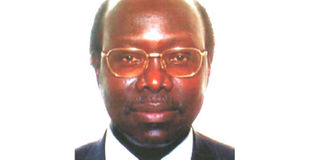Prime
Reflections on 2022/2023 Budget

What you need to know:
- As of Dec 2021, Uganda’s total debt burden was a staggering Shs73.5 trillion! It’s frankly unbelievable and indefensible.
On Friday, May 20, Parliament of Uganda passed a national budget for the 2022/2023 financial year in the amount of Shs48.1 trillion, which in hard currency is the equivalent of $12.8b.
A national budget is by definition an official statement by government of a country’s anticipated income from tax revenues and proposed spending or expenditure for the coming financial year. In a parliamentary democracy, the budget is read and tabled in Parliament by the minister responsible for finance and requires approval of the legislature in order to become operational.
Uganda’s national budget and budgetary process under the NRM regime is, truth be told, a formality, a sham and an exercise in futility. It’s at best an academic exercise whose primary purpose is to deceive and mislead wananchi, donors and Uganda’s development partners to believe that Uganda is a modern democratic State in which the legislative branch of government, namely the Parliament, appropriates national resources for economic and social development of Ugandans in accordance with the National Development Plan. The reality on the ground is a different story.
One gets the impression that the focal point and number one priority of Uganda’s budget is State House and its principal occupants. The official budget of State House is a whopping Shs677 billion, but its actual budget, which is predominantly classified expenditure, is much higher and is constantly increasing due to regular requests of supplementary expenditure which Parliament routinely approves even if MPs object. It would not be an exaggeration to say that the budget of State House is open-ended and a bottomless pit.
When Godfrey Lukongwa Binaisa was overthrown by the Military Commission of the Uganda National Liberation Front (UNLF) on May 12, 1980, one of the many accusations levied against him was that he had turned State House Entebbe into a clearing house for all manner of dubious and shady deals. The chairman of the Military Commission was Paulo Muwanga (RIP), his deputy was Sabalwanyi.
Uncle Binaisa, as my friend Ben Dramadri fondly called him, must be laughing in his grave at what has been happening at State House since 1986. I am frankly lost for words to describe activities which take place at and roles played by State House today, but what a pity and a tragedy for Uganda.
According to a story published in Sunday Monitor of May 22 titled, ‘Parliament approves Shs48 trillion budget’, a prominent feature of the budget is the astronomical public debt of Uganda.
As of December 2021, Uganda’s total debt burden was a staggering Shs73.5 trillion!
It’s frankly unbelievable and indefensible, considering the fact that Uganda was the first beneficiary of the Heavily Indebted Poor Countries (HIPC) Initiative under which Uganda’s external debt was written off in 1998.
Contrary to what Mr Ramathan Ggoobi, the Permanent Secretary of the ministry of Finance, said this is not a pro-people budget.
The priorities of a genuinely pro-people budget are education, agriculture and health.
In accordance with AU Summit decisions which Uganda supported wholeheartedly, the education sector should get a minimum of 15 percent, agriculture sector 10 percent and health sector 10 percent of the national budget. As usual, the wrong priorities of the NRM government are reflected in the budget, namely, the military, regime survival and a bloated public administration. I believe Uganda deserves a lot better.
Mr Acemah is a political scientist and retired career diplomat. [email protected]




